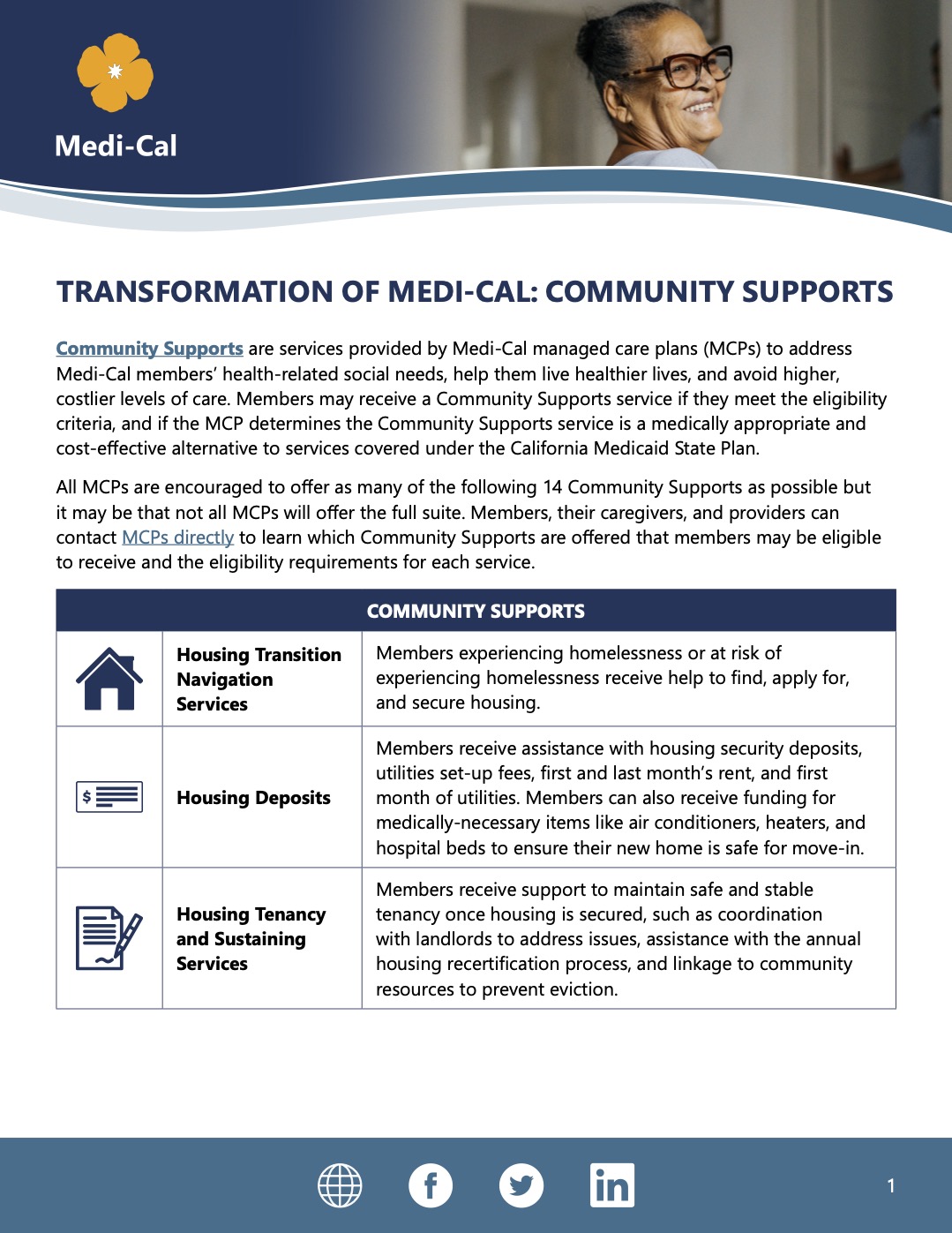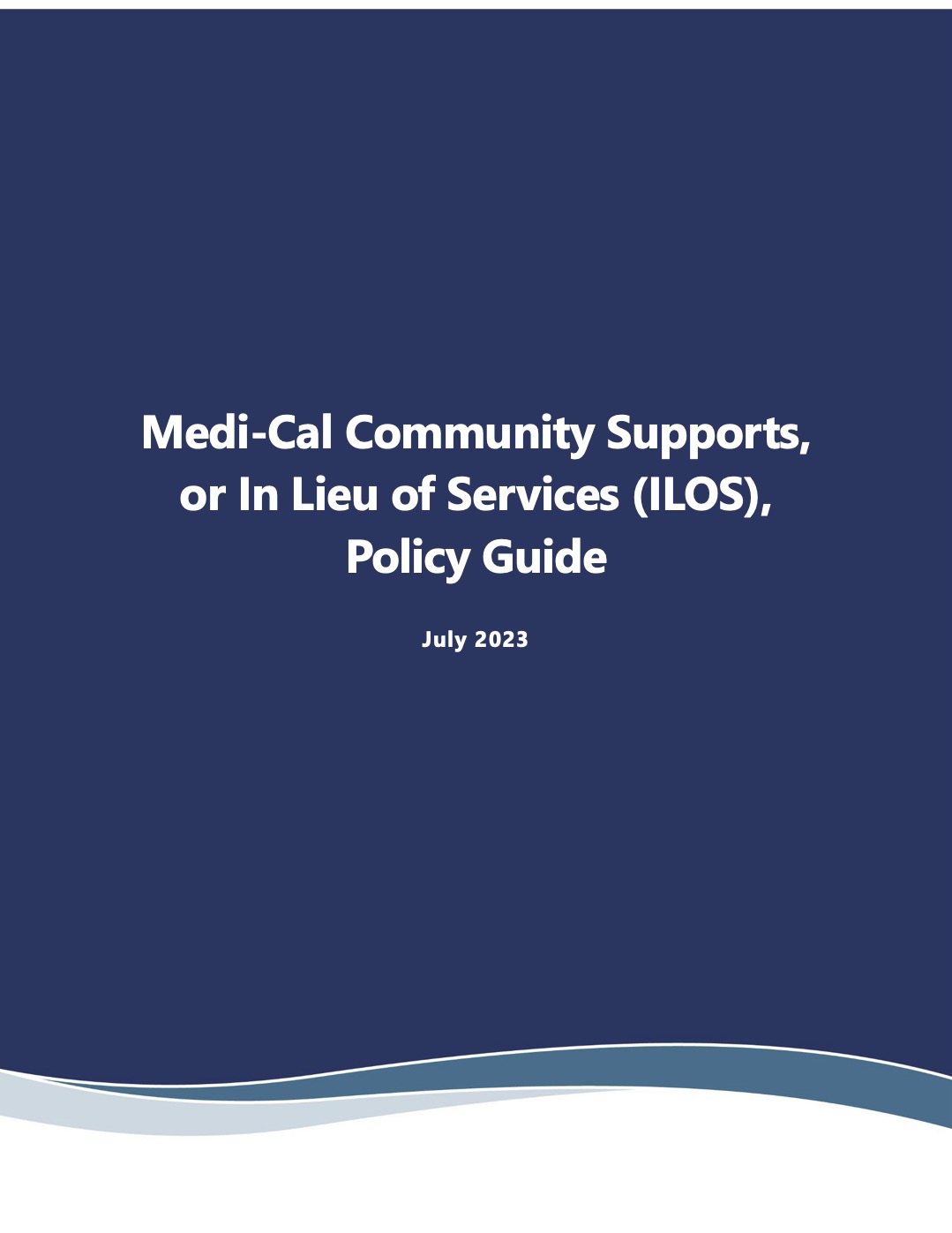COMMUNITY SUPPORTS
What are Community Supports?
Community Supports are optional non-clinical services provided by Medi-Cal managed care plans to help avoid utilization of other services or settings such as a hospital or skilled nursing facility. They are designed for members’ social needs. Members can now receive healthy food, housing support, and other services as Medi-Cal benefits.
Community Supports address the factors that can make it difficult for people to live their best and healthiest lives or to make the changes they need to be healthy. A person who is experiencing homelessness, for instance, often doesn’t have a way to store or cook healthy food. They might not know how to find a home or fill out the paperwork to apply for one. Someone who has a disability might not be physically able to cook, clean, grocery-shop, or bathe safely on their own.
DHCS provides detailed definitions and eligibility criteria for each of the following 15 Community Supports:
Supports for Housing Insecurity
Primary Audience: People Experiencing Homelessness
Housing Transition Navigation Services
Housing Deposits
Housing Tenancy and Sustaining Services
Transitional Rent
Starts July 2025
Short-Term Post Hospitalization Housing
Recuperative Care (Medical Respite)
Day Habilitation Programs
Supports to Help People Stay at Home
Primary Audience: Individuals at risk for institutionalization in a nursing home
Caregiver Respite Services
Nursing Facility Transition/Diversion to Assisted Living Facilities
Members living at home or in a nursing facility are transferred to an assisted living facility to live in their community and avoid institutionalization in a nursing facility, when possible. Assisted living facilities provide services to establish a community facility residence such as support with daily living activities, medication oversight, and 24-hour onsite direct care staff.
Community Transitions Services/Nursing Facility Transition to a Home
Environmental Accessibility Adaptations (Home Modifications)
Supports for People at Home
Primary Audience: Individuals who have certain chronic conditions and require support
Medically Supportive Food/Medically Tailored Meals
Asthma Remediation
Supports to Recover from Acute Intoxication
Primary Audience: Individuals found publicly intoxicated to divert from jail or the Emergency Department
Sobering Centers
Note the majority of referrals for this service are law enforcement and stays must be less than 24 hours
Adapted from Transformation of Medi-Cal: Community Supports
Key Resources

Transformation Of Medi-Cal: Community Supports

Medi-Cal Community Supports, or in Lieu of Services (ILOS), Policy Guide
Find Providers
Search and browse the network directory to find community support services and providers.
Training & Education

Anthem Blue Cross: Provider Training Academy

Camden Coalition: Member Sign in

